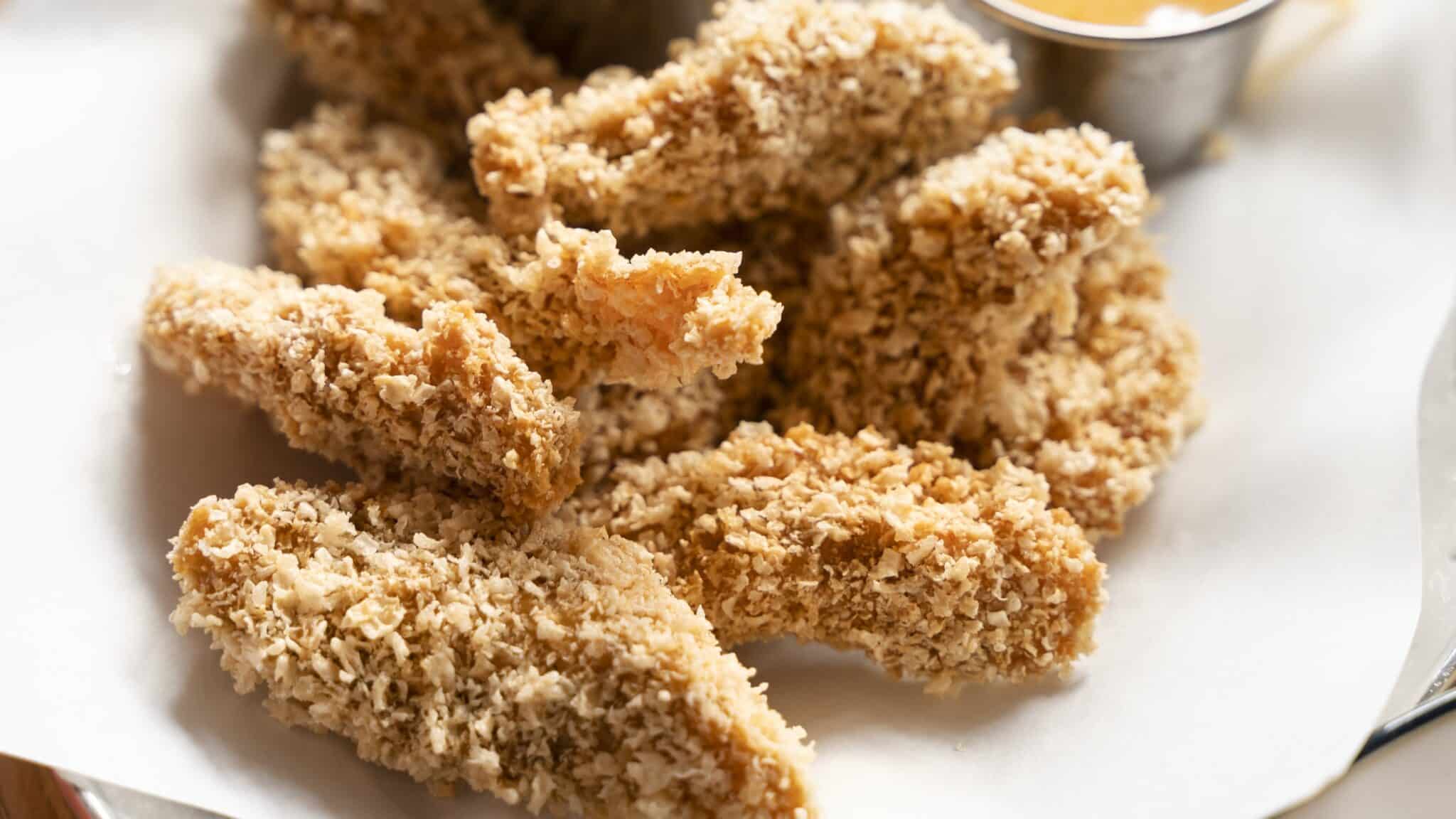Have you ever wondered what alligator meat tastes like? If you're curious about exotic meats or looking to expand your culinary horizons, alligator meat is an intriguing option. Known for its unique flavor profile and nutritional benefits, alligator meat has gained popularity in recent years. Whether you're a food enthusiast or someone exploring healthier protein sources, understanding the taste and texture of alligator meat can help you make informed decisions.
Alligator meat is often described as a cross between chicken and fish, with a mild flavor and firm texture. It is a lean protein source, making it an excellent choice for health-conscious individuals. In this article, we'll dive deep into the taste, texture, and culinary uses of alligator meat, providing you with all the information you need to decide whether this exotic meat is right for you.
As we explore the topic, we'll also discuss the nutritional benefits, preparation methods, and cultural significance of alligator meat. By the end of this article, you'll have a comprehensive understanding of what alligator meat has to offer and how you can incorporate it into your diet. Let’s get started!
Read also:Facts About Gabi Butler Unveiling The Life Of A Cheerleading Sensation
Table of Contents
- Flavor Profile of Alligator Meat
- How Does Alligator Meat Compare in Texture?
- Nutritional Benefits of Alligator Meat
- Popular Culinary Uses of Alligator Meat
- Tips for Preparing Alligator Meat
- Cultural Significance of Alligator Meat
- Is Alligator Meat Sustainable?
- Common Misconceptions About Alligator Meat
- Where to Buy Alligator Meat
- Conclusion: Is Alligator Meat Worth Trying?
Flavor Profile of Alligator Meat
One of the most frequently asked questions about alligator meat is, "What does alligator taste like?" The flavor of alligator meat is often described as mild and slightly sweet, with a subtle resemblance to chicken. However, it also has a distinct fishy undertone, which makes it unique compared to other meats. This combination of flavors makes alligator meat versatile and suitable for a variety of dishes.
When cooked properly, alligator meat retains its mild flavor while absorbing the spices and seasonings used in the recipe. For example, if you marinate alligator meat in a spicy Cajun seasoning, the final dish will have a bold, zesty flavor. On the other hand, a simple preparation with lemon and herbs can highlight the natural sweetness of the meat.
Factors Influencing the Taste of Alligator Meat
- Diet of the Alligator: The taste of alligator meat can vary depending on the diet of the animal. Alligators that consume a diet rich in fish may have a slightly stronger fishy flavor.
- Cooking Method: Grilling, frying, and baking can all influence the final taste of alligator meat. Frying, for instance, adds a crispy texture and enhances the overall flavor.
- Seasoning and Marinades: The use of spices, herbs, and marinades can significantly alter the taste of alligator meat, making it adaptable to different cuisines.
How Does Alligator Meat Compare in Texture?
When it comes to texture, alligator meat is often compared to chicken and fish. It has a firm, dense texture that is similar to chicken breast but with a slightly chewier bite. The meat is lean, with very little fat, which contributes to its firmness. This makes it an excellent choice for dishes that require a protein with a robust texture.
Unlike chicken, alligator meat does not become dry or stringy when cooked. Instead, it remains tender and juicy, especially when prepared using moist cooking methods like braising or stewing. The texture of alligator meat also makes it a great option for grilling and frying, as it holds up well to high heat without falling apart.
Texture Comparison with Other Meats
- Chicken: Similar in firmness but less fibrous.
- Fish: Comparable in tenderness but slightly chewier.
- Beef: Less fatty and more delicate in texture.
Nutritional Benefits of Alligator Meat
Alligator meat is not only delicious but also packed with nutritional benefits. It is an excellent source of lean protein, making it a healthy alternative to traditional meats like beef or pork. A 3.5-ounce serving of alligator meat contains approximately 29 grams of protein and only 2 grams of fat, making it a great option for those looking to maintain or lose weight.
In addition to being low in fat, alligator meat is also rich in essential nutrients. It contains high levels of vitamin B12, which is crucial for maintaining healthy nerve function and producing red blood cells. It is also a good source of phosphorus, a mineral that supports bone health and energy metabolism.
Read also:Spencer Star Diapers The Ultimate Guide To Comfort And Quality For Your Baby
Health Benefits of Alligator Meat
- Low in Calories: Ideal for weight management diets.
- High in Protein: Supports muscle growth and repair.
- Rich in Omega-3 Fatty Acids: Promotes heart health and reduces inflammation.
Popular Culinary Uses of Alligator Meat
Alligator meat is a staple in Southern and Cajun cuisines, where it is often used in dishes like gumbo, jambalaya, and fried alligator bites. Its mild flavor and firm texture make it a versatile ingredient that can be incorporated into a wide range of recipes. Whether you're preparing a traditional Southern dish or experimenting with international flavors, alligator meat can be a delightful addition to your menu.
One of the most popular ways to enjoy alligator meat is by frying it. Fried alligator bites, often served with a dipping sauce like remoulade or tartar, are a crowd-pleasing appetizer. Grilled alligator skewers and alligator sausages are also gaining popularity, especially among those who enjoy barbecues and outdoor cooking.
International Dishes Featuring Alligator Meat
- Cajun Gumbo: A hearty stew made with alligator meat, vegetables, and spices.
- Alligator Tacos: A fusion dish combining alligator meat with Mexican flavors.
- Alligator Curry: A spicy and aromatic dish inspired by Indian cuisine.
Tips for Preparing Alligator Meat
Preparing alligator meat requires some care to ensure that it is cooked properly and retains its flavor and texture. Here are a few tips to help you get the most out of your alligator meat dishes:
- Marinate Before Cooking: Marinating alligator meat in a mixture of spices, herbs, and acidic ingredients like lemon juice or vinegar can enhance its flavor and tenderize the meat.
- Avoid Overcooking: Alligator meat is lean and can become tough if overcooked. Use a meat thermometer to ensure it reaches an internal temperature of 165°F (74°C).
- Use Moist Cooking Methods: Braising or stewing can help keep the meat tender and juicy.
Common Mistakes to Avoid
- Skipping the Marinade: Without a marinade, alligator meat may taste bland.
- Cooking at High Heat for Too Long: This can dry out the meat.
- Using the Wrong Cut: Choose tender cuts like the tail for best results.
Cultural Significance of Alligator Meat
Alligator meat has deep cultural roots, particularly in the Southern United States. It has been a part of Native American diets for centuries and remains a popular ingredient in Southern and Cajun cuisines. In Louisiana, for example, alligator meat is often featured in festivals and community gatherings, where it is celebrated as a local delicacy.
Beyond its culinary uses, alligator meat also holds economic significance. The alligator farming industry provides jobs and supports local economies in states like Florida, Louisiana, and Texas. Additionally, sustainable farming practices help ensure the conservation of wild alligator populations.
Is Alligator Meat Sustainable?
One of the key advantages of alligator meat is its sustainability. Alligator farming is a regulated industry that adheres to strict conservation guidelines. By farming alligators, we can reduce the demand for wild-caught alligators, helping to protect their natural habitats and populations.
Moreover, alligator farming has a lower environmental impact compared to traditional livestock farming. Alligators require less land and water, and their diet primarily consists of byproducts from the fishing industry, making them an efficient and eco-friendly protein source.
Common Misconceptions About Alligator Meat
Despite its growing popularity, there are still some misconceptions about alligator meat. One common myth is that alligator meat tastes like chicken. While it does share some similarities with chicken, its unique flavor profile sets it apart. Another misconception is that alligator meat is tough and chewy. In reality, when prepared correctly, it is tender and juicy.
Some people also believe that alligator meat is difficult to find or expensive. While it may not be as widely available as chicken or beef, it is becoming more accessible in specialty stores and online retailers. Additionally, its price is comparable to other exotic meats like venison or bison.
Where to Buy Alligator Meat
If you're interested in trying alligator meat, you may be wondering where to buy it. Alligator meat is available in specialty butcher shops, seafood markets, and online retailers. When purchasing alligator meat, look for reputable suppliers who follow sustainable farming practices.
When buying online, check the product reviews and ensure that the meat is fresh and properly packaged. Some popular online retailers offer alligator meat in various cuts, including tenderloins, sausages, and ground meat. This allows you to choose the cut that best suits your culinary needs.
Conclusion: Is Alligator Meat Worth Trying?
In conclusion, alligator meat offers a unique combination of flavor, texture, and nutritional benefits that make it worth trying. Its mild taste and firm texture make it a versatile ingredient that can be used in a variety of dishes. Whether you're a fan of Southern cuisine or simply looking to explore new flavors, alligator meat is an excellent choice.
We hope this article has provided you with valuable insights into what alligator meat tastes like and how you can incorporate it into your diet. If you're feeling adventurous, why not try cooking with alligator meat today? Share your experience in the comments below, or explore more articles on exotic meats and culinary trends. Happy cooking!

